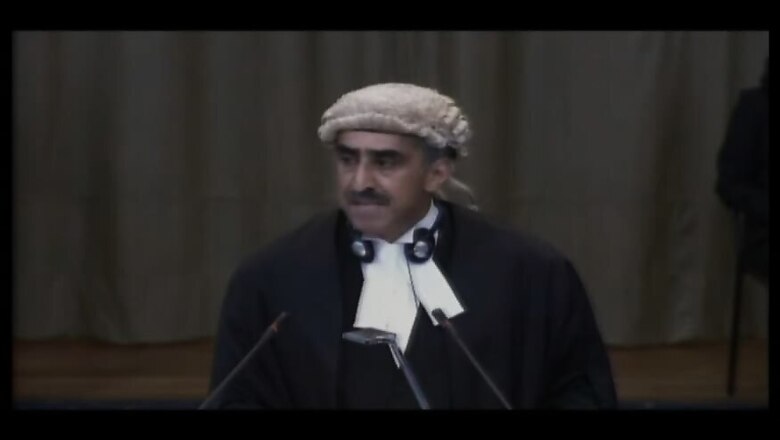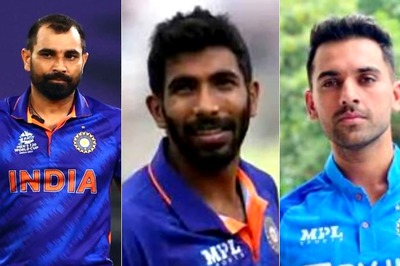
views
Pakistani representative Khawar Qureshi said that India's request was "unnecessary and misconceived" and must be dismissed because "relief sought by India is manifestly unavailable, and the jurisdiction is limited." He also said that Vienna Convention is not for spies.Here are the top pointers from the arguments made by Pakistan:
- Commander Jadhav was arrested from restive Balochistan when he crossed over from Iran
- India invoked a false sense of urgency
- India is on hyper-drive mode; using media to drum up the case
- Dismiss India's plea immediately as there is no urgency in Jadhav's case
- There is no merit in the case either, India has invoked extreme jurisdictions
- Commander Jadhav was never eligible for consular access
- India resorted to misrepresentation of facts
- Jadhav's trail was never rushed through
- Jadhav's passport details are under a cloud
- India glossed over presenting substantive material to the ICJ
- India's claim of a kangaroo court is bizarre
- India has now shifted the goalpost about the urgency and that India’s examples are factually incorrect
- There are four stages of the trial; only one stage was conducted
- Consular access to Jadhav would have been considered at some stage
- India has argued that Article 36 gives it untrammeled rights to consular access and that Pakistan had violated Article 36 of the Vienna Convention since the time Jadhav was arrested. But that is completely false as in the Avenna case which has been cited by India itself, there was no consideration given for providing consular access before the investigation began.
- Pakistan was under the threat of spying, espionage and possible acts of terror being planted by India. In that sense giving consular access to the officials of that state itself is a grave violation of Article 36 (1) (c) of the Vienna convention.
- It was held in the Avenna case that the state which wishes to be granted consular access has the onus upon them to prove that the person whose right is being violated is a national of the applicant state. But in this case, India did not even provide a birth certificate to prove his nationality and did not even come forward to explain his passport. This is a clear violation of a proposition laid down by an ICJ case.

















Comments
0 comment